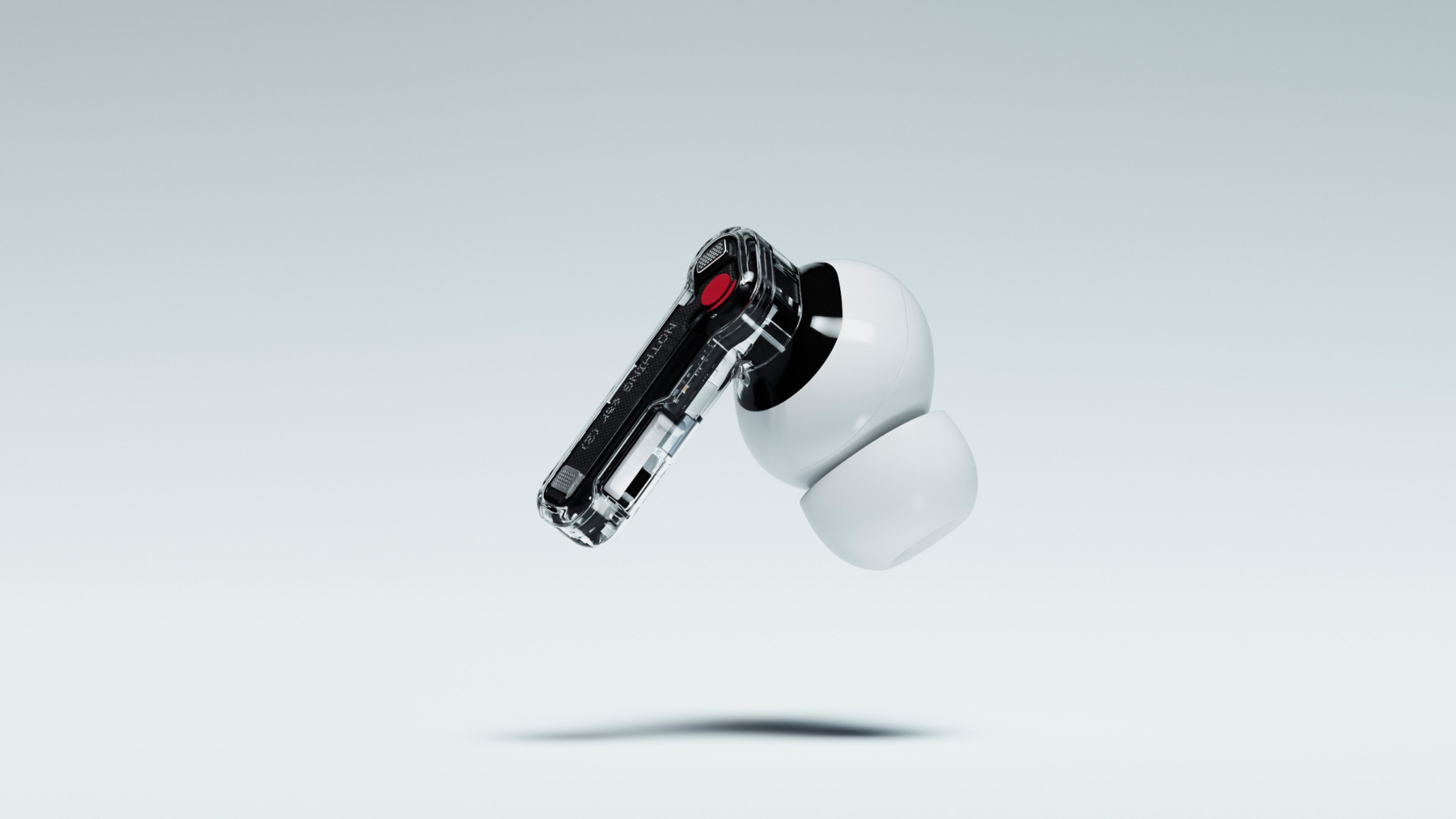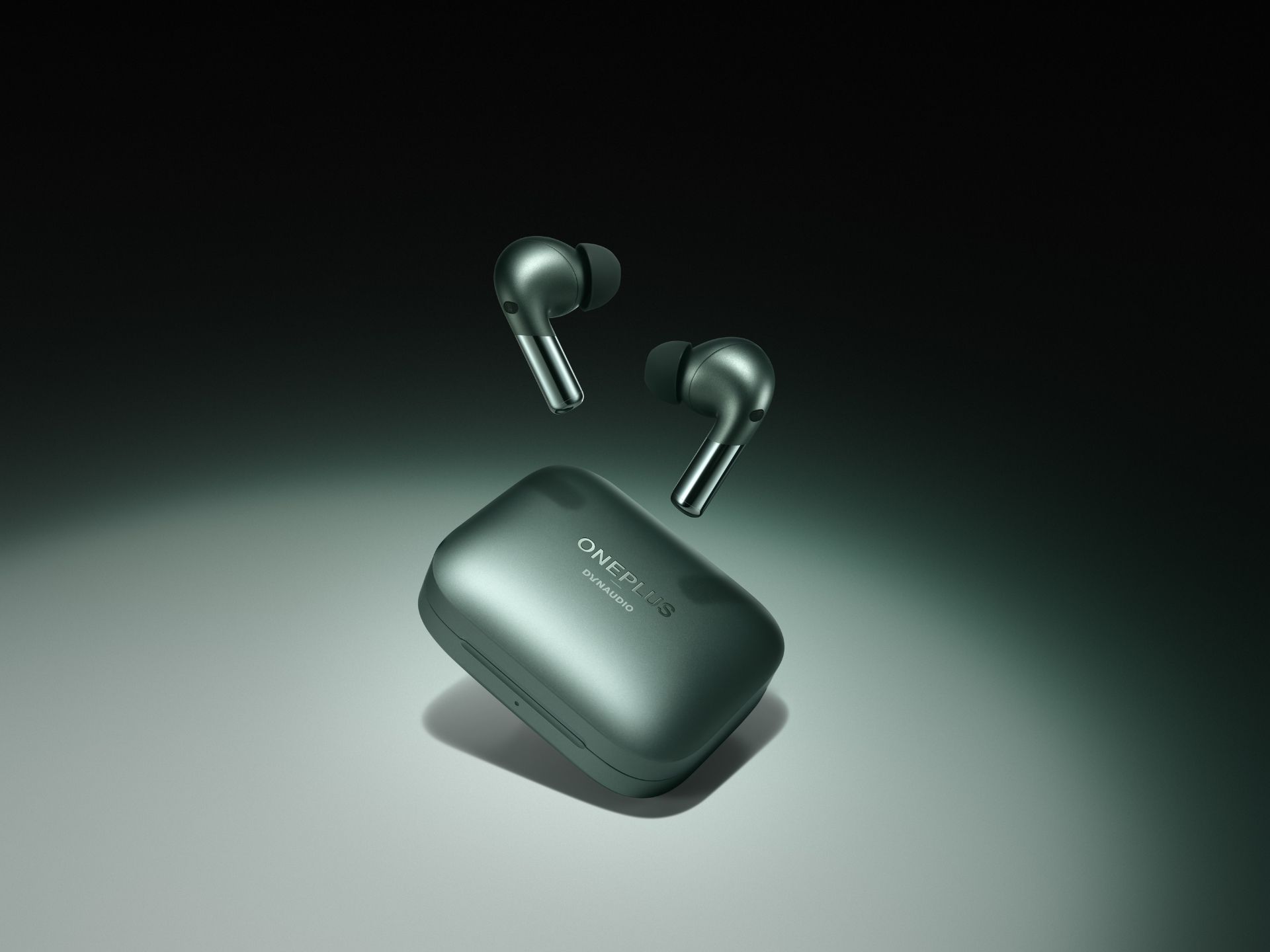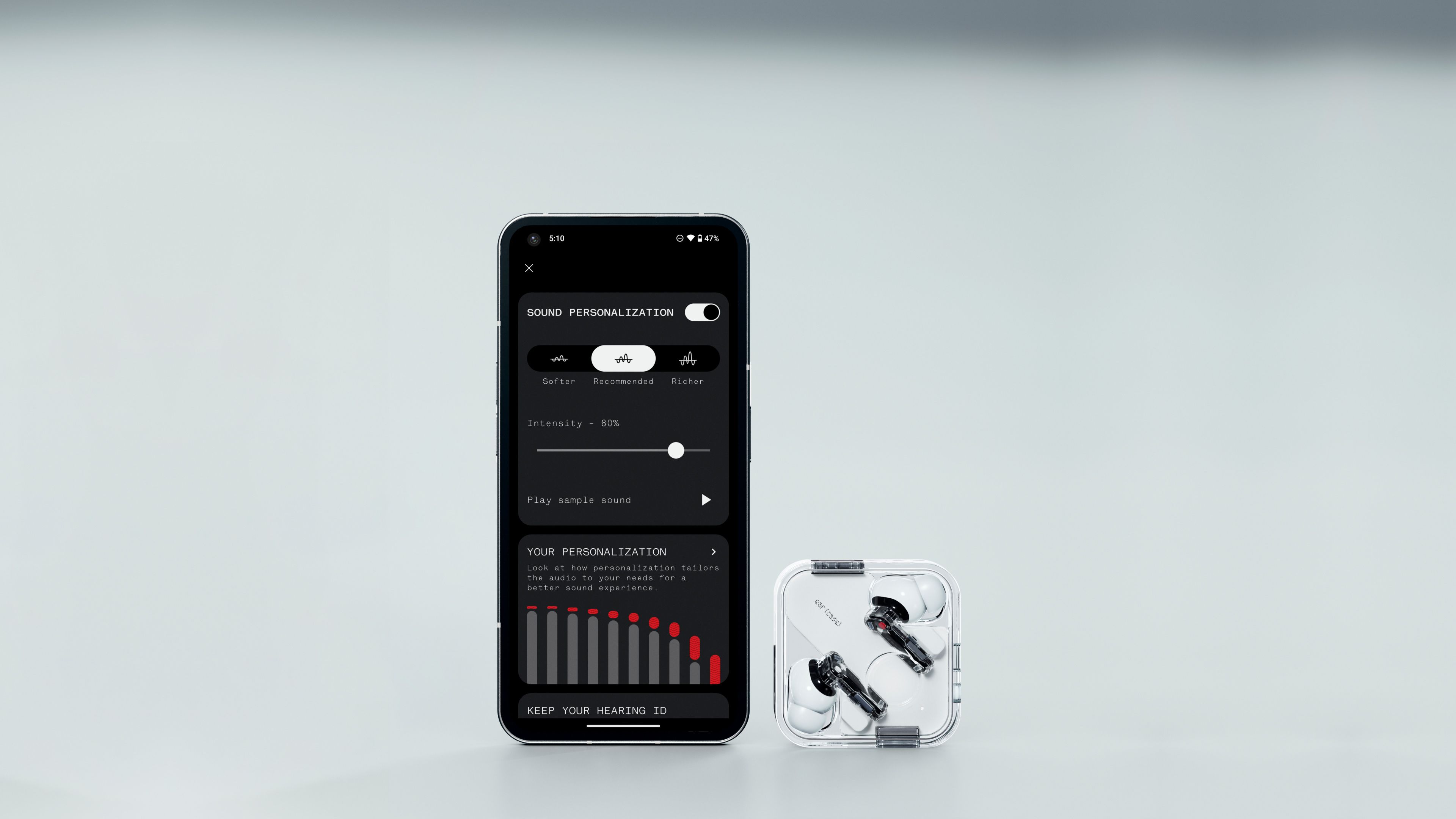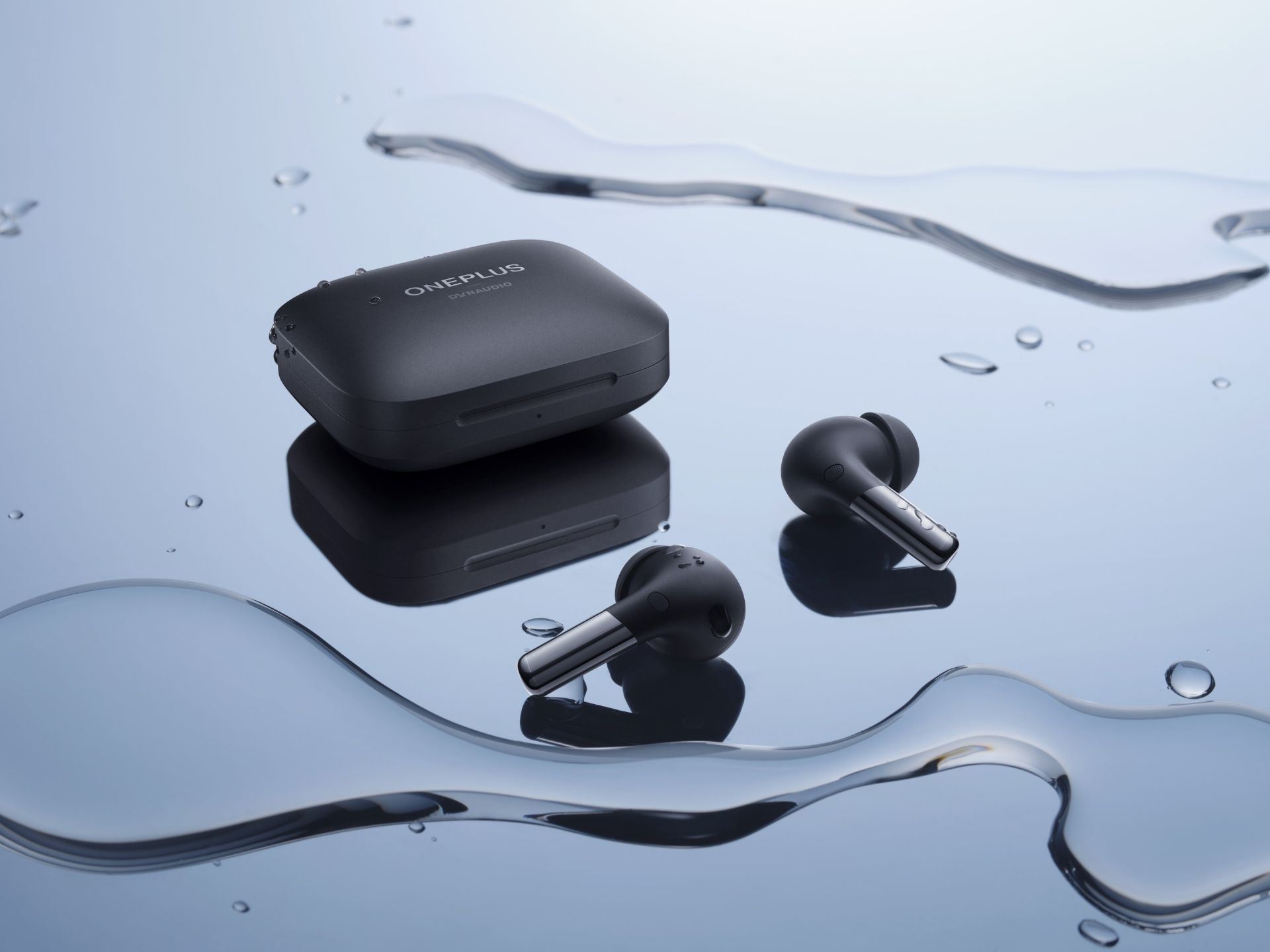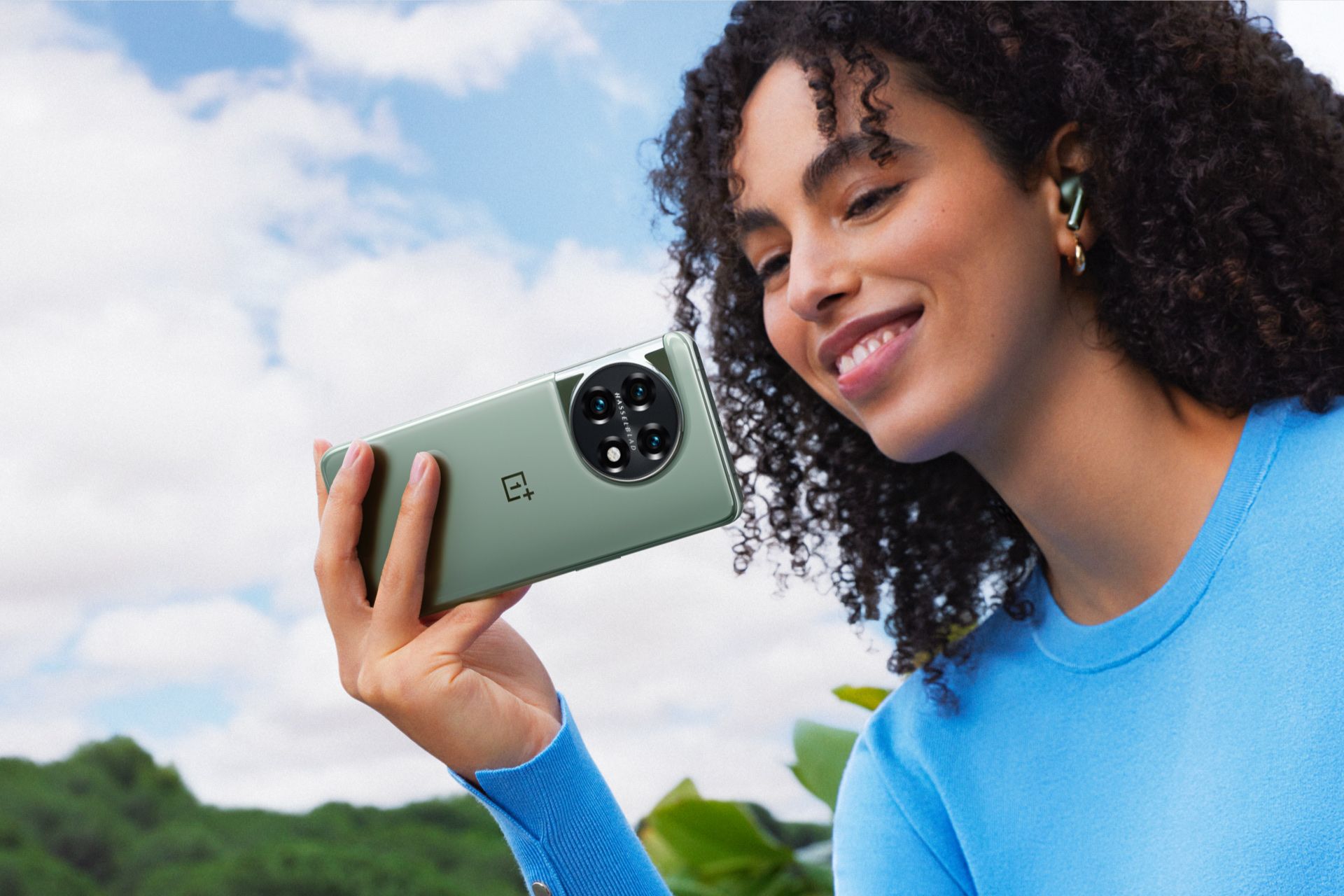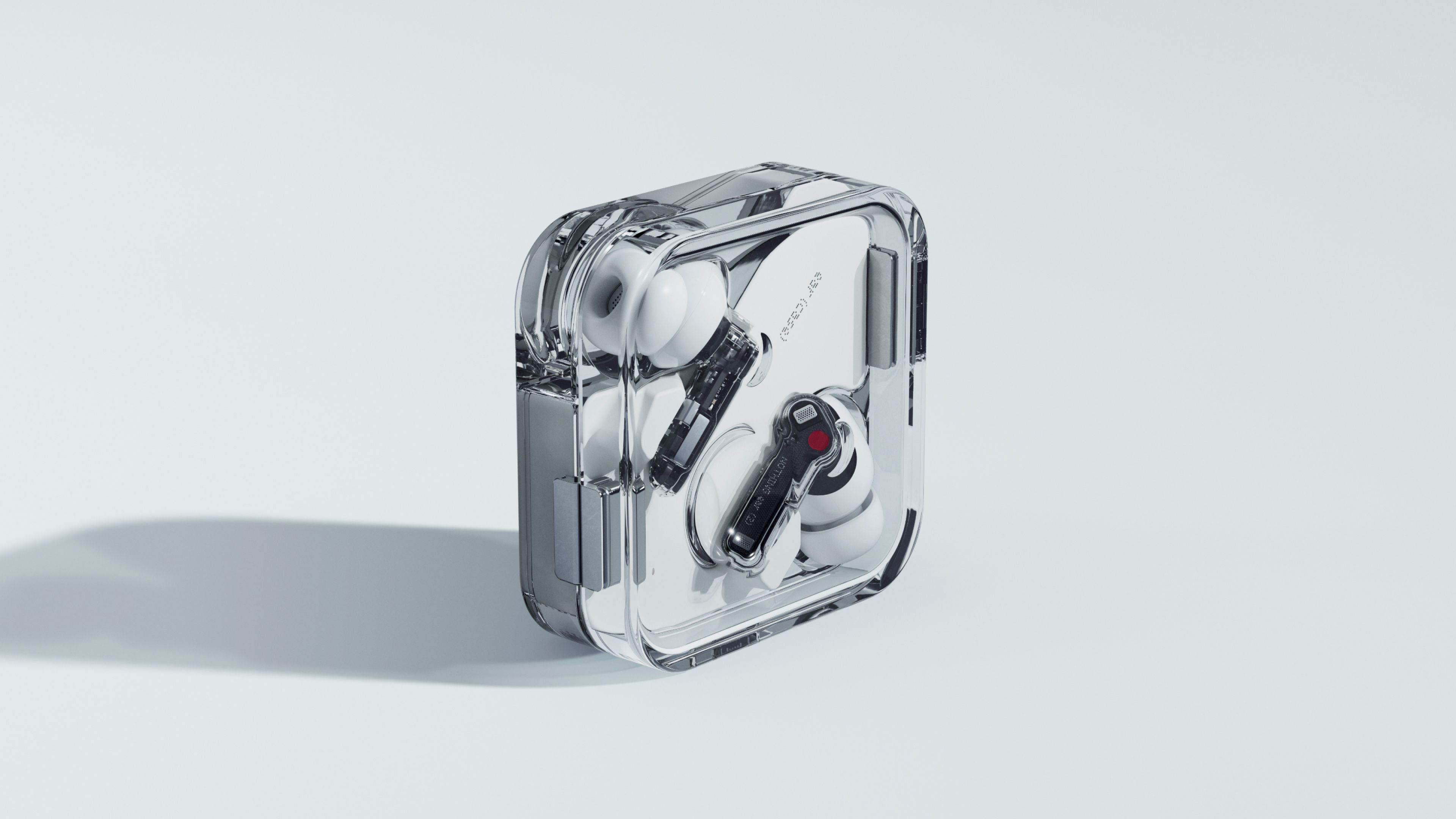-
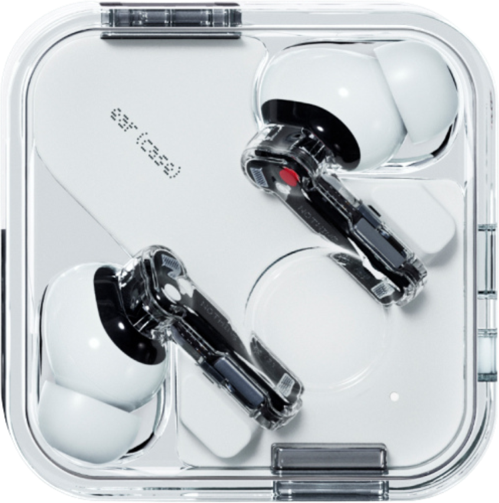
Nothing Ear 2
Nothing Ear (2) are the new true wireless earbuds from the London-based brand. The new earbuds come with features such as Hi-Res Audio, LHDC 5.0 technology, Personal Sound Profile, Dual Connection, Clear Voice Technology, and much more. There is support for Active Noise Cancelation and the earbuds also have IP54 rating.
Pros- Featured-packed yet affordable
- Lightweight and unique design
Cons- No spatial audio
- Limited color options
-

OnePlus Buds Pro 2
The OnePlus Buds Pro 2 are a great set of earbuds to own as they up the ante of audio performance with an improved dual driver system and spatial audio support. The hardware even features improved noise-canceling to help isolate yourself from the surroundings. So, if you’re looking for an audio device to pair with your OnePlus phone, this is an excellent choice, especially due to its seamless integration.
Pros- Support for spatial audio and more audio codecs
- Long battery life
Cons- Cost higher compared to the Nothing Ear (2)
- Slightly heavier
The wireless earbuds market is filled with plethora of options from a number of brands. Two of the latest and most talked-about models are the Nothing Ear (2) and the OnePlus Buds Pro 2, which offer a combination of style, performance, and features. Both TWS earbuds represent a step up from their previous generation models, with improvements in audio quality, battery life, features, and connectivity. In this article, we’ll compare the two earbuds and help you decide which earbuds are right for you.
-
Nothing Ear 2 OnePlus Buds Pro 2 Battery Life Up to 36 hours Up to 39 hours Charging Case Included? Yes Yes Microphone? Three microphones per earbud Three microphones per earbud Brand Nothing OnePlus Audio codecs AAC, SBC, LHDC 5.0 LHDC/AAC/SBC/LC3 Bluetooth Bluetooth 5.3, Google Fast Pair, Microsoft Swift Pair, Dual Connection Bluetooth 5.3, Google Fast Pair, Dual Connection IP Rating Earbuds: IP54Charging Case: IP55 Earbuds: IP55Charging Case: IPX4 Driver Size Custom 11.6 mm driver 11mm woofer + 6mm tweeter dual drivers Wireless Charging Yes Yes Weight Earbud: 4.5 grams, Charging Case: 51.9 grams Earbud: 4.9 grams, Charging Case: 47.3 grams Colors White Arbor Green, Obsidian Black Charging Port USB-C USB-C Noise Cancellation Up to 40dB, Personalized ANC, Environment Adaptive ANC, Transparency Mode Yes, up to 48dB Smart Adaptive Noise Cancellation
Price & availability
The Nothing Ear (2) is available for $149, while the OnePlus Buds Pro 2 will set you back $179. The Nothing Ear (2) has the company’s distinctive see-through white finish, while the OnePlus Buds Pro 2 are available in two colors: Arbor Green and Obsidian Black. Both the earbuds can be purchased from the respective brand’s website as well as from third-party retailers like Amazon and Best Buy.
Design & build
Starting off with the design, you will notice that both the earbuds feature a typical in-ear TWS earbuds design with silicon eartips and a long stem. However, there are some design differences between the two. The OnePlus Buds Pro 2 has been given a metallic finish, which gives it a more premium look and feel. On the other hand, the Nothing Ear (2) has a distinctive see-through white finish — there is no black color option like the Nothing Ear 1 (at least for now) — that sets it apart from other earbuds on the market.
Apart from their visual differences, there’s also a difference in weight of the two earbuds. The Nothing Ear (2) is (s)lightly lighter, with each earbud weighing only 4.5 grams, while each of the OnePlus Buds Pro 2’s earbuds weigh 4.9 grams. This may seem like a minor difference, but it can make a significant impact when you use the earbuds for a long duration.
In terms of durability, both the earbuds have a good level of dust and water resistance. The Nothing Ear (2) has an IP54 rating, while the OnePlus Buds Pro 2 has a slightly better IP55 rating, making them both suitable for use during light rain and sweat-inducing workouts.
It is, however, worth noting that the Nothing Ear (2) charging case boasts an IP55 rating, ensuring that it’s adequately protected from dust and water. In contrast, the OnePlus Buds Pro 2 charging case lacks an official dust resistance rating, with only an IPX4 rating for water resistance.
Audio & features
When it comes to audio quality and features, the Nothing Ear (2) and OnePlus Buds Pro 2 are both exceptional choices that offer great value. However, for the purpose of this comparison, let’s take a look at how these two earbuds compare on these fronts. First off, there is a difference in the speaker driver size between the two earbuds. The Nothing Ear (2) features an 11.6 mm dynamic driver unit, while the OnePlus Buds Pro 2 has a dual-driver setup that includes a 11mm woofer and a 6mm tweeter.
While the previous generation OnePlus Buds Pro were criticized for the bass-heavy audio, the new setup, OnePlus says, helps to create a sound profile that prioritizes clarity on vocals while ensuring the bass has depth.
On the other hand, Nothing says the Ear (2) has even richer high frequencies and deeper, softer bass compared to the first-gen product. Nothing also allows the users to create their own “hearing ID” that customizes the audio based on the user’s personal preferences. The earbuds dynamically adjust the equalizer settings in real time, optimizing the sound to match the hearing profile.
When it comes to audio codec support, both Nothing Ear (2) and OnePlus Buds Pro 2 support LHDC 5.0, AAC, and SBC. However, the OnePlus Buds Pro 2 supports an additional LC3 Bluetooth codec. For those unaware, the Bluetooth LC3 codec aims to deliver the same level of audio quality as SBC at lower bitrates for better performance.
Those wondering about the Bluetooth firmware, both the earbuds use the latest Bluetooth 5.3 version. Both the earbuds also support dual connection feature, which means they can be connected to two devices simultaneously. Additionally, both the earbuds support Google Fast Pair, meaning you will be able to connect them to your Android smartphone or Chromebook without develing into settings.
Active Noise Cancelation is a must-have feature these days, and both OnePlus Buds Pro 2 and Nothing Ear (2) feature adaptive ANC. The Nothing Ear (2) claims to cancel noise up to 40 dB, while the OnePlus Buds Pro 2 provides even better noise reduction capabilities with its ANC reaching up to 48 dB. Additionally, both the earbuds come with a variety of ANC modes that seamlessly adapt to your needs and the surrounding environment.
There are some key areas where the OnePlus Buds Pro 2 leave Nothing Ear (2) behind, with one of them being support for Spatial Audio. Using this feature, the user can enjoy immersive listening experience by delivering 360-degree sound. Unfortunately, this feature is not available on the Nothing Ear (2).
Another area where the OnePlus Buds Pro 2 takes the lead is in its ultra-low latency mode, which is ideal for gamers who demand quick response times. With a latency of just 54ms, the OnePlus Buds Pro 2 leaves the Nothing Ear (2) in the dust, which has a latency of 120ms.
Battery & charging
When it comes to the battery life, OnePlus claims the Buds Pro 2 can go up to 6 hours with ANC turned on or 9 hours without ANC. Coupled with the battery of charging case, this can go up to a total of 39 hours. In comparison, the Nothing Ear (2) has a shorter battery life of 4 hours with ANC on and around 6 hours without ANC, and up to 36 hours with the charging case. Thankfully, both the earbuds support fast charging.
Speaking of charging, both earbuds feature USB-C charging port. Additionally, both earbuds support wireless charging, which means you can use any Qi-compatible wireless charger to top-up the earbuds, eliminating the need for any cables or wires. The wireless charging feature also comes in handy for users who are always on the move and need their earbuds ready-to-go without any hassle.
Which is right for you?
If you’re looking for more features and don’t mind spending a little extra, the OnePlus Buds Pro 2 is the clear winner. With superior noise cancelation, longer battery life, better audio codec support, and Spatial Audio compatibility, the OnePlus Buds Pro 2 offers better value for money. Additionally, it has a dual-driver setup that ensures high-quality sound for a variety of music genres.

OnePlus Buds Pro 2
The OnePlus Buds Pro 2 are a great set of earbuds to own as they up the ante of audio performance with an improved dual driver system and spatial audio support. The hardware even features improved noise-canceling to help isolate yourself from the surroundings. So, if you’re looking for an audio device to pair with your OnePlus phone, this is an excellent choice, especially due to its seamless integration.
However, if you’re on a tight budget and still want a great listening experience, the Nothing Ear (2) is a fantastic option. Not only is it more affordable, but it is also lighter and comes with on-par essential features such as Bluetooth 5.3, dual connection, up to 40dB ANC, fast charging, LHDC 5.0, and fast pair. If you prioritize value for money, the Nothing Ear (2) is definitely worth considering.

Nothing Ear 2
Nothing Ear (2) are the new true wireless earbuds from the London-based brand. The new earbuds come with features such as Hi-Res Audio, LHDC 5.0 technology, Personal Sound Profile, Dual Connection, Clear Voice Technology, and much more. There is support for Active Noise Cancelation and the earbuds also have IP54 rating.

